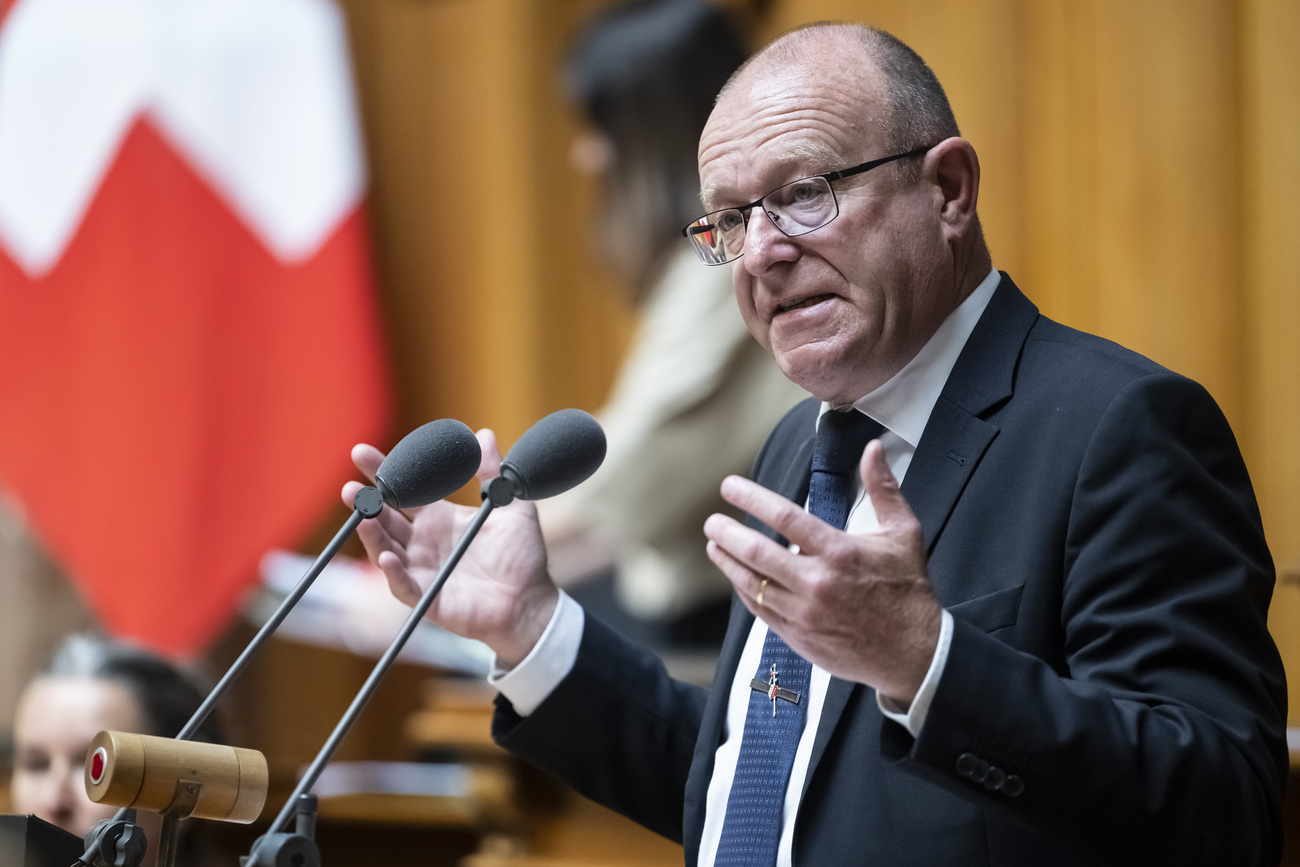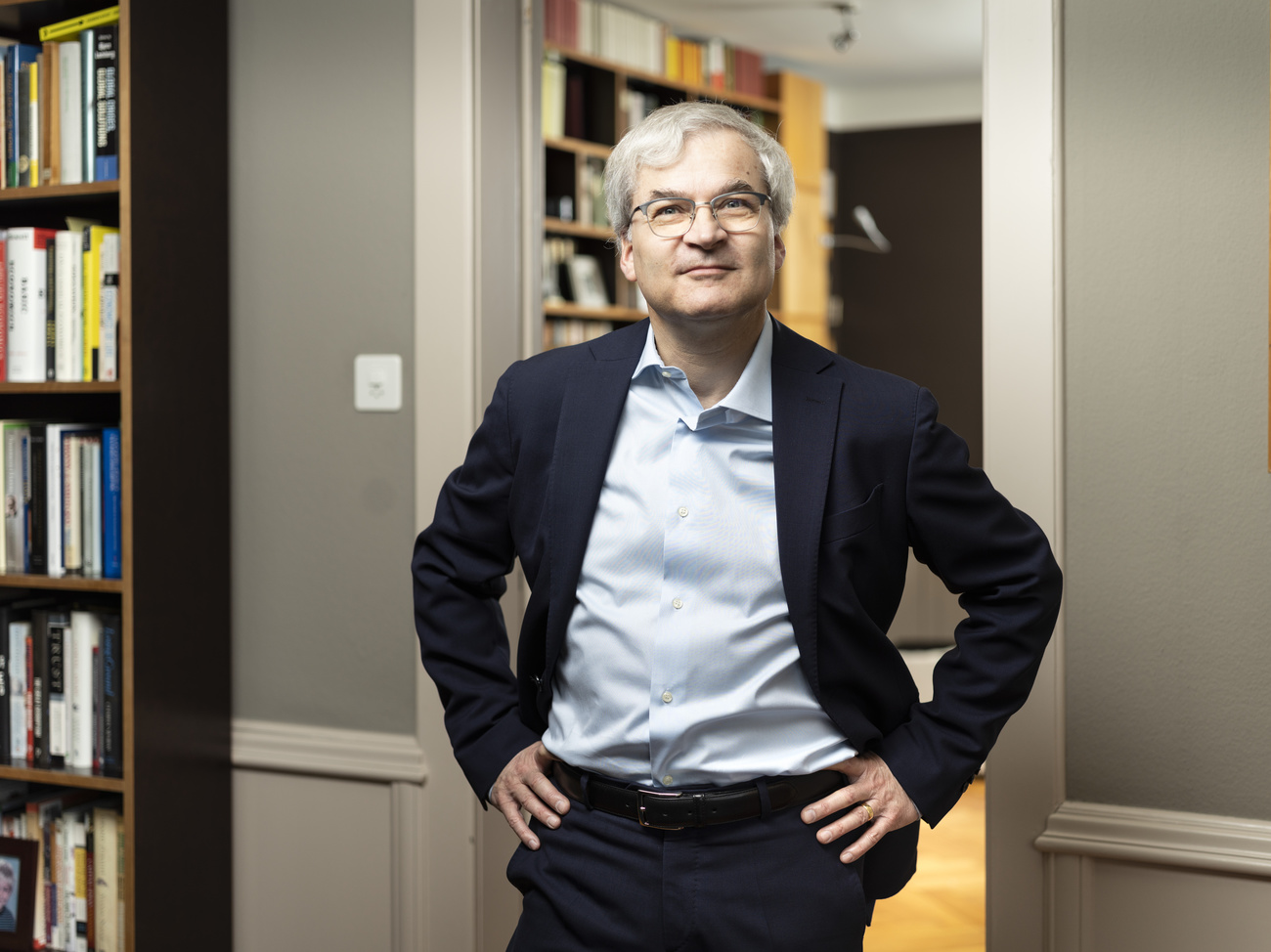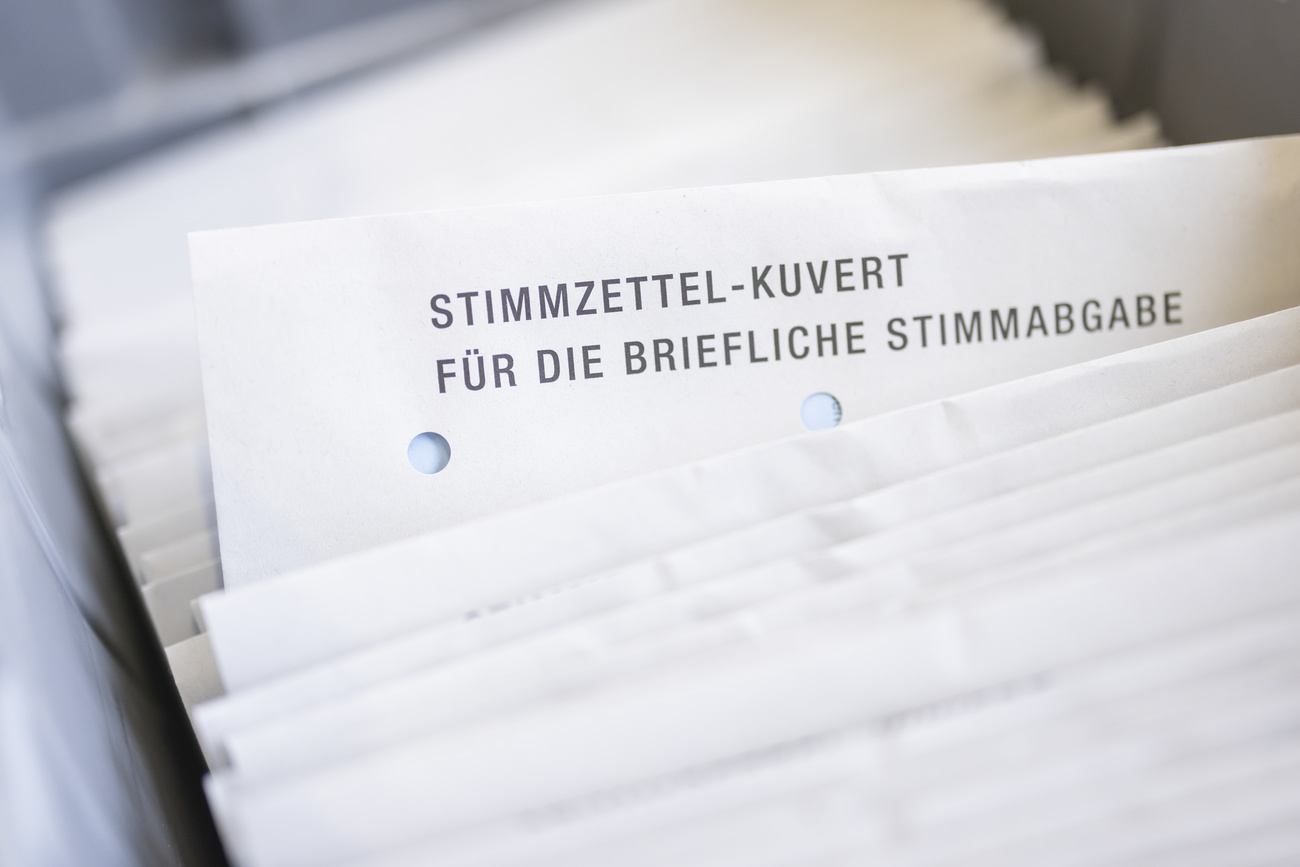‘The Swiss Abroad deserve better representation in parliament,’ says right-wing politician

Should the Swiss Abroad have their own electoral constituency? The House of Representatives doesn’t think so. On Monday it rejected a motion by Jean-Luc Addor from the right-wing Swiss People’s Party calling for the creation of such a constituency, an idea championed by the Organisation of the Swiss Abroad.
The government was also against the proposal, which was rejected by 152votes to 30. It pointed out that its introduction would require an amendment to the Constitution and would call into question the link between emigrants and their canton of origin, as well as their political rights at cantonal level. For Jean-Luc Addor, however, this is not the real reason for the reluctance within parliament.
SWI swissinfo.ch: Your motion to create a constituency for the Swiss Abroad was rejected. Are parliamentarians not prepared to amend the Constitution for the diaspora?
Jean-Luc Addor: Not wanting to amend the Constitution is a legal argument. When you don’t want to do something, you find every argument not to do it. The real reason why certain colleagues have rejected this proposal lies elsewhere. If we create a constituency for the Swiss Abroad, they will be entitled to seats in parliament. Some parliamentarians are afraid of losing their seats to representatives of the diaspora.
I gave an example to my colleagues who are worried about losing their seats: when the canton of Jura was created [in 1979], two seats were added for meetings of the Federal Assembly. Why not increase the number of members of the House of Representatives to make room for the Swiss Abroad?
More than 800,000 Swiss people live abroad. This represents almost 10% of the resident population. 227,000 of them are on the electoral register and therefore wish to exercise their political rights at home. One Swiss Abroad [Tim Guldimann] managed to be elected to the House of Representatives in 2015 and sat there briefly. However, the rest of the time, these people are hardly ever represented in parliament.

More
Swiss expat parliamentarian resigns
SWI: Why do you think it’s important for the Swiss Abroad to be physically represented in parliament?
J.-L.A.: Because they are Swiss in their own right. No one would dare say that they are half-Swiss. Life has simply led them to move abroad, either permanently or temporarily. Should we not provide an institutional response to the challenge of representing them? That’s the question I was asking myself, but parliament thinks not. Its answer is implacable.
What strikes me is that the Organisation of the Swiss Abroad has not mobilised. Nobody wants to move; nobody wants to do anything. So I guess it’s not an aspiration.
SWI: We’re used to you defending Swiss values, the Swiss in Switzerland. With this motion, you’re defending the Swiss who have left the country. Why is that?
J.-L.A.: Precisely, I’m defending the Swiss. Are the Swiss Abroad less Swiss than you and me because they have left their homeland? We’re happy for them to defend Switzerland’s interests. Are Swiss pensioners who have worked all their lives in Switzerland and are forced to emigrate because they can’t make ends meet not Swiss? They deserve to be better represented in parliament.
SWI: Swiss pensioners living abroad were attacked by your party during the campaign earlier this year for the 13th pension payment. Some of your colleagues called them profiteers. You don’t agree with that?
J.-L.A.: At the People’s Party delegates’ meeting I was the only one to stand up for the 13th pension payment. Instead of stigmatising Swiss pensioners who have worked all their lives and can’t manage to live decently here, we’d do better to ask ourselves how we can ensure that they don’t have to leave.

More
Do Swiss pensioners living abroad ‘milk’ the system?
SWI: Your party colleagues gave your motion little support. You didn’t manage to convince them this time either.
J.-L.A.: I wasn’t successful in the other groups either. I thought it was an interesting idea. Parliament thinks the opposite. Now, I think we should let the issue rest and come back to it later in a different way. I’m interested in knowing what the Swiss Abroad think. I’m not going to get involved on their behalf against their will.
SWI: In practical terms, what would the creation of a constituency for the Swiss Abroad change?
J.-L.A.: In the parliaments of the countries around us, for example, there are representatives from the constituencies of the Italians or the French who live abroad. Admittedly, these elected representatives don’t represent all the citizens abroad, but at least there is an institutional response to the representation of these people. Here, we certainly have a Swiss Abroad parliamentary intergroup, of which I am a member. But do our compatriots abroad feel properly represented by the Swiss parliament? I’m not sure.
The Organisation of the Swiss Abroad (OSA) is in favour of creating an electoral constituency for the Swiss abroad.
“Having direct representation in parliament would represent real added value. What’s more, with a specific constituency, it would probably be easier to introduce electronic voting for the diaspora,” says its director Ariane Rustichelli.
Within the organisation, a working group has been studying the possibility of implementing this idea for several years. It will deliver its conclusions on July 11. “However, as we have already seen in the past, the vote in parliament shows that there is no political majority in favour of an electoral constituency for the Swiss Abroad,” Rustichelli says.
She believes that the fear of breaking emigrants’ ties with their canton of origin, the costs involved and the difficulty of changing the electoral system are all factors against the project. “We have not had any contact with Jean-Luc Addor, but we support his approach, even if it unfortunately has little chance of succeeding,” Rustichelli adds.
SWI: Do you feel that the diaspora does not carry enough political weight within the Confederation?
J.-L.A.: I think that’s something to think about. If that’s their impression, these people need to come forward in greater numbers at the next elections and get their message across more effectively, particularly through the Organisation of the Swiss Abroad.
SWI: Do you feel that the Swiss Abroad lobby does not carry enough weight?
J.-L.A.: It has its own logic, but I’m not convinced that it meets the aspirations of the majority of Swiss Abroad.

More
Trooping Swiss colours in the UK
Edited by Samuel Jaberg. Translated from French by DeepL/ts

In compliance with the JTI standards
More: SWI swissinfo.ch certified by the Journalism Trust Initiative


You can find an overview of ongoing debates with our journalists here. Please join us!
If you want to start a conversation about a topic raised in this article or want to report factual errors, email us at english@swissinfo.ch.